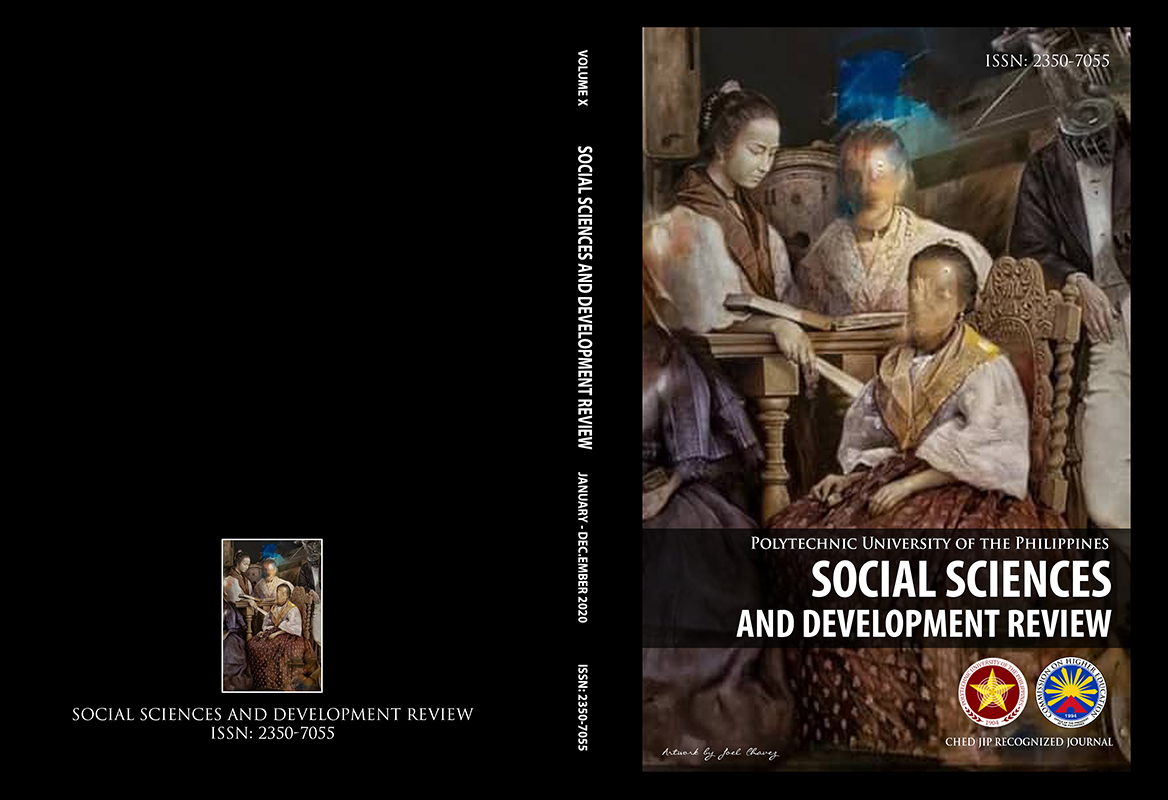Mental Health and Coping Strategies among Faculty Members and Administrative Employees in a State University during the COVID-19 Pandemic
DOI:
https://doi.org/10.70922/yby11m24Keywords:
mental health, coping, depression, anxiety, stressAbstract
This study examined the mental health and coping strategies among faculty members and administrative employees at the Polytechnic University of the Philippines, Manila. The descriptive-correlational method was utilized in the study and the data were collected online using the Google Form. The respondents were seven hundred eighty-eight (788) faculty members and administrative employees in the main campus of the University. The Depression, Anxiety, and Stress Scale (DASS) was used to determine the mental health while the SARS/COVID Coping Strategies Instrument was employed to ascertain the coping used by the respondents during the pandemic. Results indicated that majority of the respondents (560 or 81.80%) experienced normal to mild depression while 64 or 8.10% reported severe to extremely severe level of depression. It also revealed that 612 or 77.70% of the respondents had normal to mild anxiety, and 114 or 14.40% felt severe to very severe anxiety. The respondents also disclosed that majority of them (696 or 88.30%) encountered normal to mild stress, while 54 or 6.80% experienced severe to very severe stress. The respondents utilized most of the coping strategies found the SARS/COVID coping instrument. Some of the coping strategies were significantly and positively associated with the dimensions of the mental health while the other coping strategies were found to be significantly but negatively associated with depression, anxiety, and stress of the respondents.
Downloads
References
Downloads
Published
Issue
Section
License
Copyright (c) 2020 Nicolas T. Mallari, Anna Ruby P. Gapasin, Jose M. Abat, Rodrigo V. Lopiga (Author)

This work is licensed under a Creative Commons Attribution-NonCommercial 4.0 International License.
Articles published in the SOCIAL SCIENCES AND DEVELOPMENT REVIEW will be Open-Access articles distributed under the terms and conditions of the Creative Commons Attribution-Noncommercial 4.0 International (CC BY-NC 4.0). This allows for immediate free access to the work and permits any user to read, download, copy, distribute, print, search, or link to the full texts of articles, crawl them for indexing, pass them as data to software, or use them for any other lawful purpose.


